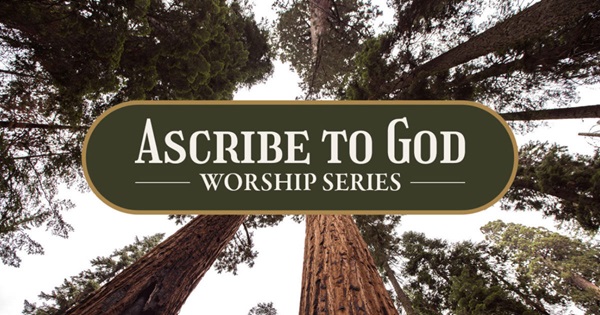We are entering the longest season of the Christian Year, the Sundays after Pentecost, or what is also called Ordinary Time. For many, it feels rather ordinary, week after week of the long spring and summer and even into the early fall season. Yet, it could be argued that this season is where our faith gets put to the test, where the church takes the stage and seeks to live out all that has been learned as we show to the world what living in the kingdom looks like. We don’t walk alone, however, which is why the first series of this long season is about the God we proclaim. Here, in the season after Pentecost, we ascribe to God all the glory, all the wonder, all the joy that is within us. To help us in that task, we turn to the songbook of the Hebrew scriptures, the Psalms and we begin with Isaiah’s knee-knocking encounter in the presence of the God we worship.
All-Consuming Presence (May 26)
How often do we plan and show up to worship expecting to encounter God? It feels like the right answer should be, “Every week!” But, in reality, I’m sure many of us would prefer not to be scared witless by the glory of God as Isaiah was in today’s passage. Or, at the very least, we’d like some warning so we can be prepared! And yet, isn’t that at least part of what worship planning is about, showing up and expecting to encounter God? We certainly believe that God is ever-present, so shouldn’t worship be about learning to recognize God’s presence among us?
All-Knowing Creator (June 2)
In the thirteenth century, Thomas Aquinas commented that in theology, we study God and all things related to God (Summa Theologica, I.1.7; my summary). To that end, having a whole worship series that focuses on the doctrine of God may seem unnecessary, since everything we do in worship is either about God or things related to God. And yet, the mystery of God deserves our attention in worship. So often we pray and sing and preach in worship in an attempt to make sense of things—the difficulties in our world, the miracles of God’s provision, how to faithfully respond to difficult situations and questions. But worship is also a place to join together in our wondering, to wade into the mysterious waters of our faith and trust that whatever else we find, God is there.
Immutable in Love (June 9)
Immutable. That’s not a word we hear much in everyday conversation. However, it is a word that gets a lot of play in the study of the doctrine of God. Immutability—that is, unchangingness—is one of the (generally) agreed-upon attributes of the Triune God throughout the history of Christian theology. Naming God’s immutability is, in part, a way of distinguishing God from humans, who are always changing and, at times, quite fickle. Now, you might be thinking, “But what about those times God changes God’s mind? What are you gonna do with that?” This is no place to enter into a centuries-long debate about whether an immutable God can change God’s mind. However, it does raise an interesting point for reflection concerning Psalm 138, our text for today, because the psalmist affirms that one attribute of God is absolutely steadfast and, to use our fancy theology term, immutable: God’s love.
All-Powerful to Save (June 16)
As we conclude this series that interweaves the doctrine of God with the Psalms, I cannot help but reflect on belief and knowledge as partners in the Christian life. Belief leads us to pursue questions that deepen our knowledge, and knowledge informs the shape and character of our belief. Perhaps most important, though, is the reality that growing in belief and knowledge is not just an academic exercise. It is part of living our faith.
Dr. Lisa Hancock, Director of Worship Arts Ministries, served as an organist and music minister in United Methodist congregations in the Northwest Texas and North Texas Annual Conferences, as well as the New Day Amani/Upendo house churches in Dallas. After receiving her Master of Sacred Music and Master of Theological Studies from Perkins School of Theology, Lisa earned her PhD in Religious Studies from Southern Methodist University wherein she researched and wrote on the doctrine of Christ, disability, and atonement. Originally published by Discipleship Ministries. Republished with permission by ResourceUMC.

